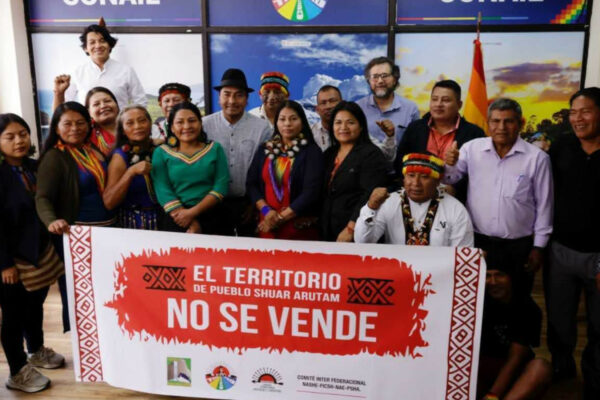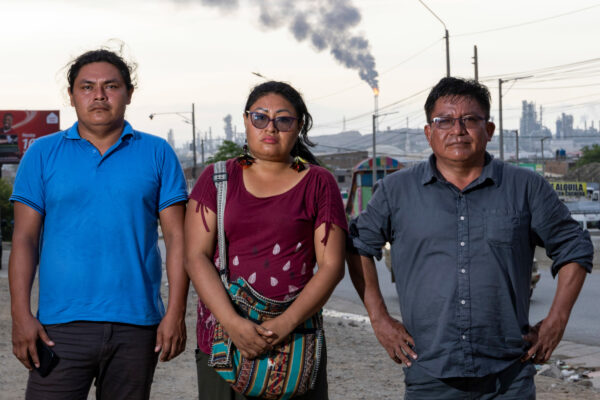A growing group of Ecuadorean indigenous activist groups, working with environmentalists both inside and outside the country, are taking steps to try to reroute or halt completely the country’s heavy crude oil pipeline (OCP) – and the increased involvement of one local organization may make the difference in their success.
On Tuesday, protesters occupied the office of Energy Minister Pablo Teran, while environmental organizations filed a lawsuit in the constitutional court to halt the start of construction of the pipeline, scheduled for next month.
The opposition began several months ago when naturalists said that the route of the long-awaited 450,000-barrel-per-day pipeline would traverse the Mindo forest, river, and mountain territory that is home to numerous bird and other animal species, some of which are in danger of extinction. The naturalists suggested that the route of the pipeline follow that of the existing Sote line and not veer off to the north of Quito, as it does.
The pipeline route, however, is written into the contract between the Ecuadorean government and the consortium that will build and operate the line, OCP Ltd., comprising Alberta Energy, ENI, Kerr-McGee, Occidental, Perez Companc, Repsol-YPF, and Techint. OCP Ltd. was obliged as part of the lead up to construction to produce an environmental impact assessment (EIA), and did deliver an eight-volume report to the government in mid-April (OD Apr.23,p9). While OCP has de-clined to discuss the subject, the company that compiled the assessment, Entrix, says it stud-ied four routes and that the route through the Mindo region was the safest environmentally.
Some public hearings have been held on the route, but more are needed, say activists.
They claim that the planned route was written into the contract before the EIA was made and hearings were held. That makes the contract invalid, they say.
It is this alleged violation of the consultation process called for in Ecuadorean law that forms the basis of the lawsuit, according to Amazon Watch, one of the groups opposing the line. However, indigenous groups are questioning not only the route of the pipeline, but the impact of the new oil production needed to fill the pipeline, as much of the richest oil reserves are in areas they call home or that are in national parklands.
In addition to filing suit and demonstrating outside and inside the Energy Ministry, the pipeline opponents have written a letter to the three banks involved in the project – JP Morgan Chase, Citigroup, and Deutsche Bank – to “take immediate steps in preventing a tragedy in the making” by holding up funding until there is more public consultation and rerouting of the pipeline.
The 17 international groups that signed the letter to the banks include Greenpeace, Friends of the Earth, Rainforest Action Net-work, Oxfam America, the International Eco-tourism Society, and the German rainforest protection group, Rettet den Regenwald.
Of significance is the increasing involve-ment of Ecuadorean indigenous umbrella or-ganization Conaie. It was this group, together with disaffected military officers, that turned an economic protest into a coup that ousted former President Jamil Mahuad and installed his vice president, Gustavo Noboa, in his place.
Thus, it may be that the pressure on the government, rather than on OCP itself, will have an effect of at least delaying the start of construction if not actually changing the pipeline route.













